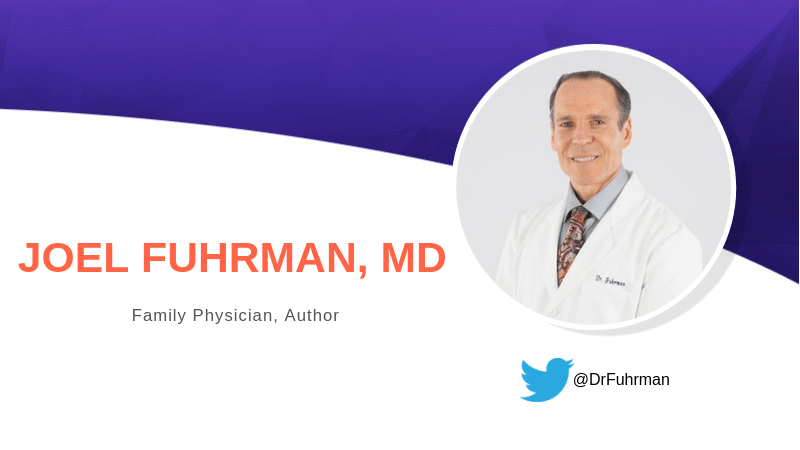Q&A with Joel Fuhrman Re: Social Media Engagement and Building Digital Authority
Reputation Staff Writer


Dr. Joel Fuhrman is a physician, nutritional researcher and New York Times best-selling author. Dr. Fuhrman created the nutritarian diet and has authored 20 books, including Eat to Live and Eat for Health. He shares how he built his online brand and uses social media strategy to foster patient engagement with deeply personal experiences.
This interview has been edited and condensed.
How did you decide to build yourself as a brand?
That wasn’t my objective. My objective was to build a successful business, giving people the information they need to control their health, and illustrating that you don’t have to be sick and take drugs for the rest of your life.
When I’m developing a product I want to sell, I think about what’s missing in the marketplace, why this product is important and how it addresses an obstacle or difficulty a person is having. I believe it’s about the message, not the messenger.
You’ve said it’s important to try to help people with something you’re passionate about. Does building a personal brand flow naturally out of that mindset?
Correct. I wanted to motivate people and create a feeling of connection — send the message is that they’re not doing this alone. We’re behind them. We’re supporting them. There are other people involved.
The whole purpose of our social media is to help people feel connected with one another. It’s also a venue for me to build that sense of personal connection with my own family. People tell me, “Oh, I really enjoy seeing your daughters making healthy food.” People love that kind of stuff, and I love to share it. They like to just watch me eat in the kitchen or see what I’m making for lunch. This type of content gives folks a glimpse into my life and what I’m passionate about. It also provides that sense of authenticity that so many brands are trying to achieve with their social media.
What are you doing right now to cultivate that sense of connection?
Right now, I’m doing a detox program with about 300 people. We have a Zoom meeting two or three times a week. So far, the response has been great — they love connecting, learning and sharing. We talk about recipes and discuss what I’ve been eating and what they’re eating. Over time, we’ve discovered that there’s a real demand for this, that people want this and they’re willing to pay for it. Providing that unique opportunity to connect helps them and motivates them — and they really appreciate it.
As you’ve developed your brand, are there any lessons you’ve learned?
Well, radio ads didn’t work, that’s for sure. We did a campaign with a radio station. I think we paid them $50,000. They held a contest where six people would follow my program and the station would check in with them on the air. These six people lost an amazing amount of weight. It was incredible, but from a marketing perspective, it was a total waste of $50,000.
Why do you think that was the case?
I think my message is only effective for a small percentage of our population. If 1% of people might be interested in what I have to say, then I have to go after a broad market and do things for national exposure. Local media advertising doesn’t work for me. I’ve got to do something on a much larger scale to attract people who are more interested in my message, which is why social media has been such an effective channel.
What is your niche?
My niche is not to water down the message to appeal to what people want to hear and want to do. Everybody else is trying to appeal to a broader market and, in doing so, they’re no longer honest.
Reputation.com helps healthcare brands monitor and manage their online presence, with the goal of helping to improve the patient experience. Download our medical guide on How to Compete for Patients in the Digital Age.

